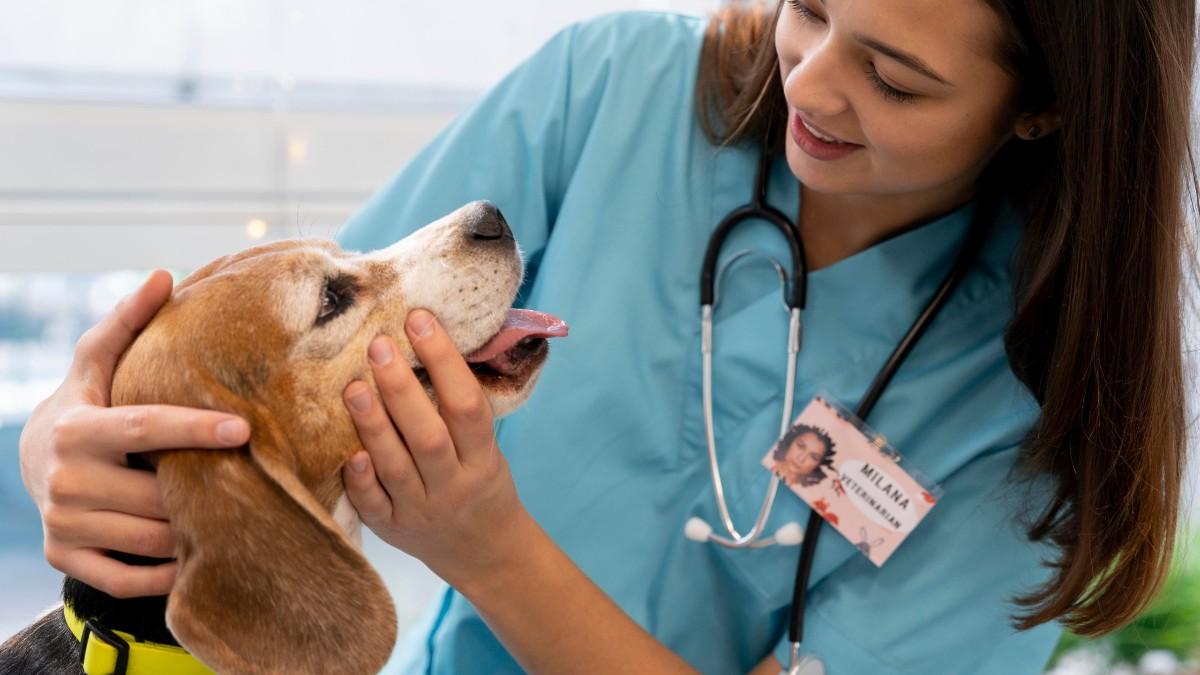5 Common Health Problems in Dogs and How to Prevent Them
Dogs are more than just pets, they are family. As responsible pet owners, it’s our duty to ensure they live happy, healthy lives. Unfortunately, dogs can’t tell us when something’s wrong, so it’s up to us to recognize the signs of common health problems and take steps to prevent them. In this blog post, we’ll explore 5 Common Health Problems in Dogs and How to Prevent Them, offering practical tips to keep your furry friend in top shape.
What Are the Top 5 Health Issues in Dogs and How Can You Prevent Them?
Dogs, just like humans, can face a variety of health challenges throughout their lives. Among the most common are dental disease, obesity, skin allergies, ear infections, and arthritis. Dental disease can lead to pain, infection, and even organ damage, but regular brushing, dental chews, and vet check-ups can keep your dog’s mouth healthy. Obesity is another major concern, often caused by overfeeding and lack of exercise prevent it by controlling portions, feeding a balanced diet, and ensuring daily activity.
Skin allergies may arise from food, environmental factors, or parasites; preventing them involves regular grooming, flea control, and identifying allergens early. Ear infections, especially in floppy-eared breeds, can be avoided by keeping ears clean and dry. Lastly, arthritis is common in older dogs or certain breeds but can be managed or sometimes delayed through weight control, joint supplements, and low-impact exercise. By understanding these risks and taking preventive measures, you can help your dog enjoy a longer, healthier, and more comfortable life.
1. Obesity: A Growing Concern for Dogs
Obesity is one of the most common health issues in dogs, affecting nearly 56% of dogs in the U.S. alone. Excess weight can lead to serious conditions like diabetes, joint problems, and heart disease.
Signs of Obesity in Dogs:
- Difficulty feeling their ribs under a layer of fat
- Lack of energy or reluctance to exercise
- Heavy panting after minimal activity
How to Prevent Obesity:
- Feed a balanced diet with portion control.
- Avoid overfeeding treats or table scraps.
- Ensure regular exercise, such as daily walks or playtime.
- Consult your vet for a tailored diet and exercise plan.
By maintaining a healthy weight, you can significantly reduce the risk of obesity-related health problems in your dog.
2. Dental Disease: More Than Just Bad Breath
Dental disease is another common issue, affecting over 80% of dogs by the age of three. Poor oral hygiene can lead to painful infections, tooth loss, and even organ damage if bacteria enter the bloodstream.
Signs of Dental Disease:
- Bad breath
- Yellow or brown buildup on teeth
- Difficulty eating or chewing
- Swollen or bleeding gums
How to Prevent Dental Disease:
- Brush your dog’s teeth regularly with pet-safe toothpaste.
- Provide dental chews or toys designed to reduce plaque.
- Schedule annual dental checkups with your vet.
- Consider professional cleanings if recommended.
Taking care of your dog’s teeth is a simple yet effective way to prevent serious health issues.
3. Ear Infections: Common in Floppy-Eared Breeds
Ear infections are particularly common in breeds with floppy ears, like Cocker Spaniels and Basset Hounds. Moisture and debris can get trapped, creating a breeding ground for bacteria and yeast.
Signs of Ear Infections:
- Frequent scratching or pawing at the ears
- Redness, swelling, or discharge
- Unpleasant odor from the ears
- Head shaking or tilting
How to Prevent Ear Infections:
- Regularly clean your dog’s ears with a vet-approved solution.
- Dry their ears thoroughly after baths or swimming.
- Check for signs of irritation or infection weekly.
- Avoid inserting cotton swabs or other objects into the ear canal.
By keeping your dog’s ears clean and dry, you can help prevent painful infections.
4. Arthritis: Managing Joint Health
Arthritis is a common problem, especially in older dogs or larger breeds like German Shepherds and Labradors. This condition causes inflammation in the joints, leading to pain and reduced mobility.
Signs of Arthritis:
- Limping or stiffness, especially after rest
- Difficulty climbing stairs or jumping
- Swelling or tenderness around joints
- Reduced activity or reluctance to play
How to Prevent Arthritis:
- Maintain a healthy weight to reduce stress on joints.
- Provide joint supplements like glucosamine and chondroitin.
- Ensure regular, low-impact exercise to keep joints flexible.
- Use orthopedic beds or ramps to minimize strain.
While arthritis can’t always be prevented, early intervention can slow its progression and improve your dog’s quality of life.
5. Parasites: Fleas, Ticks, and Worms
Parasites like fleas, ticks, and worms are not only annoying but can also cause serious health problems, including skin infections, anemia, and even life-threatening diseases.
Signs of Parasites:
- Excessive scratching or biting at the skin
- Visible fleas, ticks, or worms in fur or feces
- Weight loss or a bloated belly
- Lethargy or changes in appetite
How to Prevent Parasites:
- Use monthly flea and tick preventatives as recommended by your vet.
- Keep your dog’s living area clean and free of pests.
- Regularly deworm your dog, especially if they spend time outdoors.
- Check your dog’s coat for ticks after walks or hikes.
Preventing parasites is essential for keeping your dog healthy and comfortable.
Final Thoughts
As we’ve discussed, 5 Common Health Problems in Dogs and How to Prevent Them include obesity, dental disease, ear infections, arthritis, and parasites. By staying vigilant and taking preventive measures, you can help your dog avoid these issues and enjoy a longer, happier life.
Remember, regular vet checkups are crucial for early detection and treatment of potential health problems. Your vet can provide personalized advice based on your dog’s breed, age, and lifestyle. So, whether it’s brushing their teeth, keeping them active, or protecting them from parasites, a little effort goes a long way in ensuring your dog’s well-being. After all, a healthy dog is a happy dog!
Frequently Asked Questions (FAQs)
Q1. What are the most common health problems in dogs?
Some of the most common include dental disease, obesity, skin allergies, ear infections, and arthritis.
Q2. How can I prevent dental disease in my dog?
Brush your dog’s teeth regularly, provide dental chews, and schedule professional cleanings with your vet.
Q3. What is the best way to avoid obesity in dogs?
Feed a balanced diet, control portion sizes, and ensure your dog gets daily exercise suited to their breed and age.
Q4. How can I reduce the risk of skin allergies?
Identify and avoid allergens, keep your dog’s coat clean, and consult your vet for allergy testing or treatment.
Q5. How can I prevent ear infections in my dog?
Check and clean your dog’s ears regularly, especially if they have floppy ears, and keep them dry after baths or swimming.



Post Comment